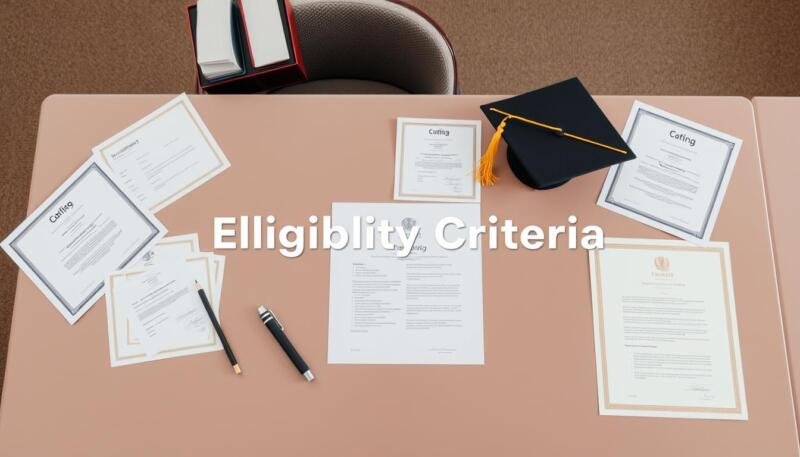
Find graduate business school scholarships UK MBA for your Master's degree

You remember the moment the fee notices arrived and the plan felt fragile. You sat at your kitchen table, thinking the only way to study was to delay life. Then an email offered a chance a named award that matched your story.
That small message changed everything. It showed how targeted funding and a strong application can protect your time for learning and career change. Major providers now favour academic excellence, leadership and measurable impact. For example, Warwick lists category-led awards while Edinburgh offers awards from £5,000 upwards.
You’ll get clear information on opportunities, eligibility and how to frame your impact. This introduction helps you map awards, assess total value and prepare an application that highlights leadership and sector achievements.
Learn how to find, apply for, and win top scholarships for 2025–2026 across the US, UK, Canada, and Australia.
Explore Scholarships Guide →Read on to find practical tips that reduce out-of-pocket costs and help you move from research to a timely, convincing application for your mba journey.
- Start here: your UK MBA scholarship landscape in the present cycle
- Graduate business school scholarships UK MBA: curated categories to explore
- Featured UK providers and funding ranges you can apply for
- How to apply for an MBA scholarship: forms, essays and committee review
- Eligibility and selection criteria that strengthen your application
- Fees, bursaries and funding mix: making your MBA more affordable
- Apply with confidence: timelines, opportunities and next steps
Start here: your UK MBA scholarship landscape in the present cycle
Begin by checking how leading programmes define merit and impact for this intake. For 2025–26, awards focus on academic excellence, leadership potential and the desire to make positive change. You should map which providers offer provider-funded awards, alumni- or industry-backed schemes, and university-wide bursaries that may stack.
What this cycle covers
Top programmes link support to clear themes. WBS highlights Change Maker values and diversity. Edinburgh weighs academic record, work experience and answers in the Scholarship Application Form.
Who these awards target
Most awards favour applicants with a solid academic baseline and meaningful experience for their career stage. Committees look for leadership examples, community work and evidence of impact.
- Key criteria: academic merit, leadership, measurable impact.
- Profile elements that matter: employment history, concrete projects, community involvement.
- Timing: track programme updates and form deadlines; the scholarship committee scans early for fit.
| Provider signal | Main focus | What to highlight |
|---|---|---|
| WBS | Change Maker & diversity | Leadership projects, inclusive impact |
| Edinburgh | Academic record & experience | Strong grades, clear work achievements |
| Industry/alumni funds | Sector fit & potential | Relevant sector experience, future goals |
Graduate business school scholarships UK MBA: curated categories to explore
Identify the award types that best show how your work and values translate into impact. These category-led awards let you present clear evidence: sector change, social outcomes, or sustained local commitment.

Change Maker Personal Impact in Your Sector
This award recognises people who have changed practices within their sector. Show quantified improvements, innovations at work and leadership that lifted teams or clients.
Change Maker Personal Impact in Your Society
For those using enterprise or volunteering to create social gains. Evidence might include measurable outcomes, community reach and sustained commitment to positive change.
Championing Diversity and Community
There are targeted routes for Black in Business and for LGBTQUA+ candidates and allies. These awards aim to increase representation and support emerging leaders.
Geographic and Local Options
Some awards focus on Africa, Latin America or Europe, while locally resident funds favour Coventry and Warwickshire applicants with strong civic ties.
Inspiring Females and Executive Opportunities
Women who demonstrate excellence can access dedicated awards. For Executive MBA applicants, note two exceptional 50% awards and a 30% Club invitation.
- Tip: Pick one category and tailor evidence to its criteria rather than diluting your case across many.
- Tip: For guidance on how to apply scholarship routes and paperwork, consult the practical apply scholarship guide.
Featured UK providers and funding ranges you can apply for
Look first at providers offering the strongest combination of discounts, bursaries and named awards. This helps you plan which route will cut course fees most effectively and fit your profile.

Warwick Business School: scholarships, bursaries and alumni loyalty discount
WBS offers multiple category scholarships that align with leadership, social impact and sector change. You can combine these with a 35% Alumni Loyalty Discount (this includes the University’s minimum 10% alumni award) to lower fees significantly.
Discretionary bursaries are available for applicants facing economic hardship, conflict or refugee status. For executive mba candidates, there are two 50% awards and an invitation to the 30% Club. WBS also partners with WeAreTheCity and City Women’s Network to support women’s leadership.
University of Edinburgh Business School: mba scholarships from £5,000 upwards
Edinburgh’s full‑time awards start at £5,000. The selection looks at academic profile, the nature and level of your experience, and the quality of your answers in the scholarship application form.
The School’s awards sit alongside University and external funding, so you can assemble a package that reduces fees and covers living costs.
| Provider | Typical funding | What to evidence |
|---|---|---|
| WBS | Category awards + 35% alumni discount; bursaries; 50% EMBA awards | Leadership, impact, hardship (where relevant) |
| Edinburgh | From £5,000; school, university or external awards | Academic record, work experience, application form answers |
How to apply for an MBA scholarship: forms, essays and committee review
Begin with the deadline in sight and build every answer around verifiable outcomes.
Scholarship application form essentials
Complete each field with precise facts. Use dates, figures and short examples so the reader can check your claims.
Save drafts, confirm referees early and submit any extra documents well before the deadline.
Writing a persuasive essay
Write a focused essay that shows measurable results and leadership behaviour. Start with one key achievement, add metrics and finish with how you will create impact in the cohort.
What the scholarship committee evaluates
"The panel seeks clarity, evidence of individual impact and alignment with the programme's values."
Highlight outcomes, stakeholder feedback and a clear plan to add value as a student and alumnus.
Ambassadorial duties for successful candidates
If selected, you may be asked to support recruitment, speak at events or contribute content. Show willingness to help and give examples of prior outreach.
- Align every paragraph in the form to the criteria.
- Keep the essay tight: one story, three metrics, one future role.
- Plan for reviews and a final check 48 hours before the submission deadline.
| Stage | What to include | Why it matters |
|---|---|---|
| Application form | Accurate dates, role titles, clear achievements | Committee verifies facts against referees |
| Essay | One focused narrative with metrics | Shows impact and your potential |
| References | Two referees who confirm outcomes | Supports credibility and evidence |
| Post-award duties | Events, panels, marketing support | Demonstrates ambassadorial fit |
For specific guidance on forms and award routes, see the WBS pages on programme scholarships or the HEC funding information at HEC funding. These links help you match form questions to each provider's expectations.
Eligibility and selection criteria that strengthen your application
Start with the selection criteria and reverse‑engineer your application to match what panels reward. Focus on three core areas: academic excellence, leadership potential and relevant professional experience. This gives you a clean structure to frame every answer.

Academic excellence, leadership potential and professional experience
Academic excellence shows you can handle the rigour of the programme. Use clear grades, awards and relevant modules.
Leadership potential means documented outcomes: team size, budget, or project reach. Committees score potential when you show growth and scope.
Professional experience should show complexity and value. Describe scope, cross‑functional work and sector relevance with short metrics.
Evidence of individual impact and alignment with core values
Panels want measurable impact. List results, timelines and endorsements so the scholarship committee can verify claims quickly.
- Show one strong metric per achievement.
- Link a project to values such as curiosity or openness.
- Mention ambassadorial roles or outreach to demonstrate commitment.
For a model award route and further guidance see the Skoll scholarship as an example of criteria and impact focus.
Fees, bursaries and funding mix: making your MBA more affordable
Fees can feel like a barrier, but mixing discounts, bursaries and awards often halves your net cost.
Model your course fees against likely awards. Start with the base fee, subtract confirmed discounts, then layer bursaries and targeted awards.
Course fees, awards and how scholarships reduce costs
WBS offers a 35% Alumni Loyalty Discount, which is inclusive of the University of Warwick’s 10% alumni award. That alone trims a large portion of course fees.
Edinburgh’s awards begin at £5,000 and can combine with university or external grants to lower your overall funding need. For practical comparisons, see the programme fee and funding details at course fees and funding.
Bursaries for candidates facing economic hardship or conflict
Discretionary bursaries at WBS support candidates in economic hardship, those domiciled in conflict zones or with refugee status. These routes usually require evidence and an application required statement of need.
"The most persuasive cases pair clear financial information with concise evidence of impact and responsibility."
Alumni discounts and stacking rules you should know
Stacking rules vary. WBS’s loyalty discount already includes the university alumni award, so you cannot double‑count both. Plan which awards you can combine and which are mutually exclusive.
| Item | Example | Effect on fees |
|---|---|---|
| Alumni discount | WBS 35% (includes 10%) | Reduces base course fees substantially |
| Named awards | Edinburgh from £5,000+ | Direct fee reduction or stipend support |
| Bursary (need-based) | WBS discretionary bursary | Covers fees or living costs where evidence is provided |
| Executive awards | WBS two 50% EMBA awards | Halves fee for selected part‑time candidates |
To build a realistic plan, combine personal savings, employer support and external grants. Prepare documents early and ensure any application required fields are complete.
- List your base course fees and deadlines.
- Identify discounts and which ones stack.
- Gather proof for need-based bursaries and referees.
- Apply early and track responses.
For further funding information and examples of merit awards, consult the guide on merit-based funding. This helps you match applications to timing and maximise value.
Apply with confidence: timelines, opportunities and next steps
Map deadlines, forms and referees now so you can focus on strong essays and crisp form answers later.
Make a simple 4–8 week plan: list each programme's deadline, note which application required form sections need evidence, and book referees. Target one award category per application where a provider asks you to apply under a single route.
Tailor your essay and application form answers to show leadership, clear metrics and sector impact. The scholarship committee looks for concise evidence and a consistent narrative about potential and commitment.
Use a final quality‑check: confirm dates, attach proof of work experience, verify referees, and ensure every required form field is complete. If you need extra resources, consult the apply guide or find funding options via external funding resources.
When offers arrive, compare total value, terms, and ambassadorial duties. Negotiate timing politely if you must choose between awards, then plan visas, accommodation and course enrolment promptly.
Looking for Scholarships in 2026?
Explore our complete collection of top scholarships for international students across the USA, UK, Canada, Australia, and Europe.






Leave a Reply